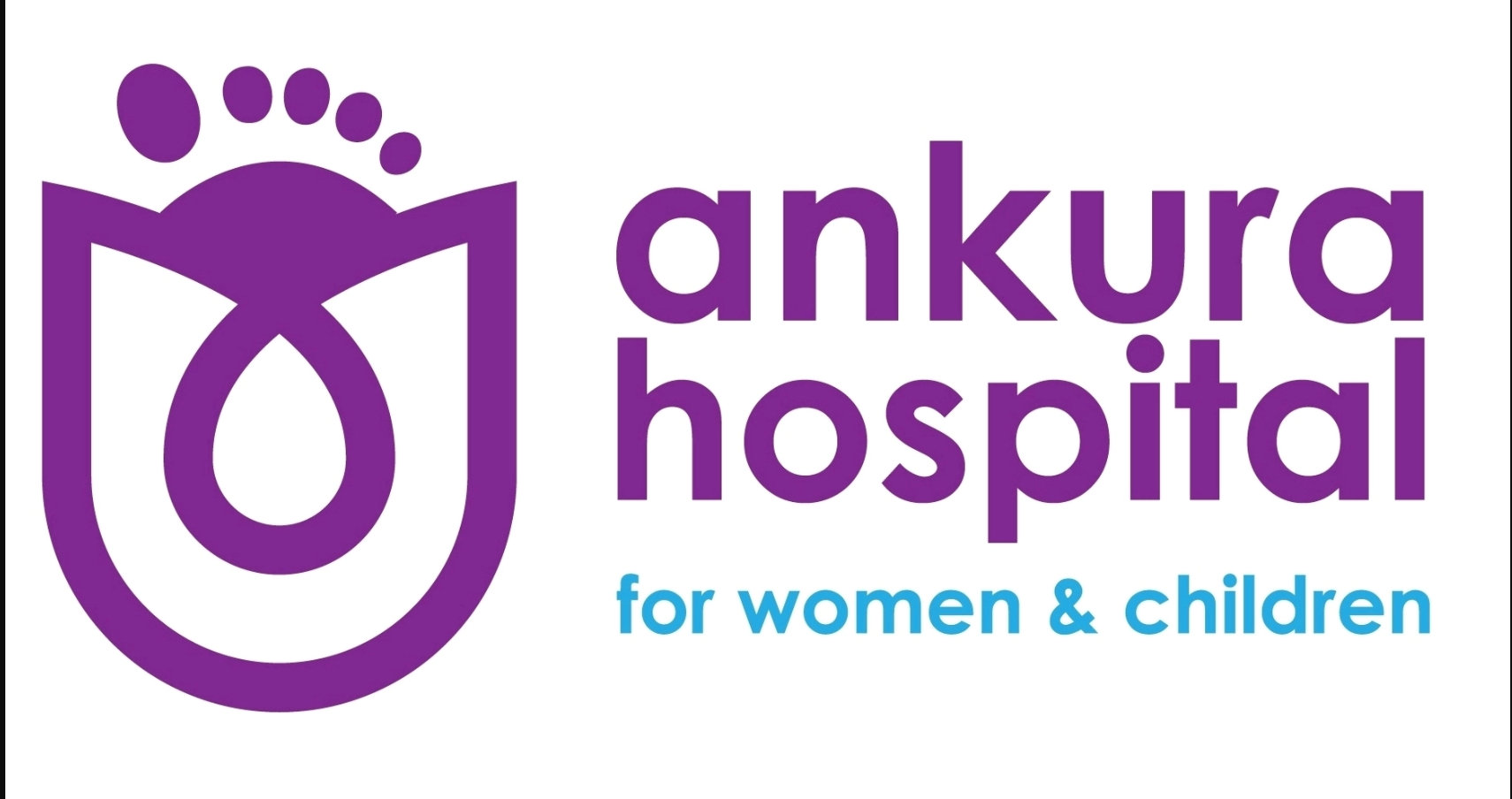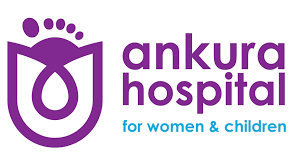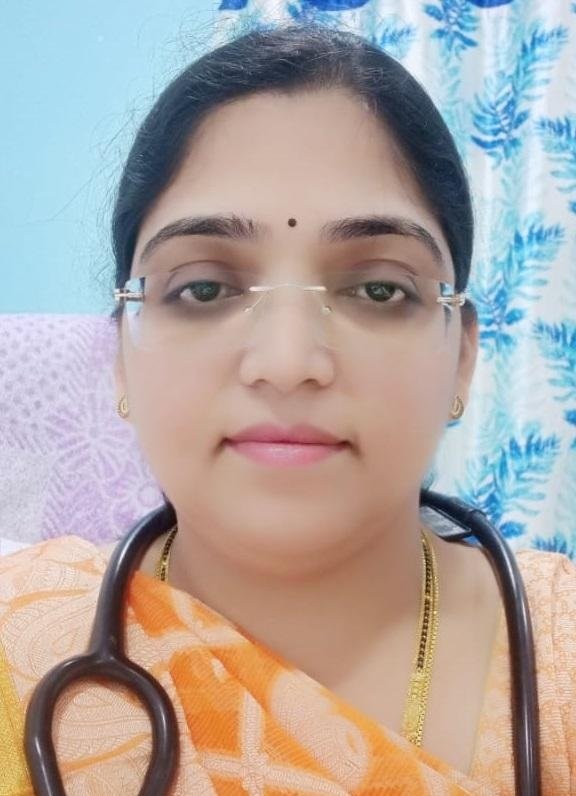Best Nephrology Hospitals in Hyderabad

Continental Hospitals
Gachibowli, HyderabadMulti-Specialty Hospital
Plot Number 3, Road Number 2, IT and Financial District, Nanakramguda
8771 KM's away
Specialities
31Doctors
81Beds
232
Udai Omni Hospital
Chapel Road, HyderabadMulti-Specialty Hospital
5-9-94, Nampally
8784 KM's away
Specialities
18Doctors
38Beds
70
Sunshine Hospitals
Secunderabad, HyderabadMulti-Specialty Hospital
Penderghast Road
8787 KM's away
Specialities
13Doctors
23Beds
500
Ankura Hospital For Women & Children- Kukatpally
Kukatpally, HyderabadPlot 55 & 56, Jntu Hitech City Road, Near Hitech City Railway Station, KPHB 7th phase, Kukatpally Housing Board Colony, Telangana 5000
8777 KM's away
Specialities
4Doctors
22Beds
100
Century Hospital
Banjara Hills, HyderabadMulti-Specialty Hospital
Amrutha Estate, Road Number 12, Bhola Nagar
8780 KM's away
Specialities
19Doctors
22Beds
0
Care Hospital
Musheerabad, HyderabadMulti-Specialty Hospital
1-4-908/7/, Musheerabad Main Rd, Bakaram, Kavadiguda, Hyderabad
8788 KM's away
Specialities
17Doctors
21Beds
90

Apollo Spectra Hospitals
Kothaguda, HyderabadMulti-Specialty Hospital
Plot Number 1 & 6, Kothaguda X Roads, Kondapur
8774 KM's away
Specialities
12Doctors
18Beds
50
Ankura Hospital For Women And Children (Avis Ankura)
Banjara Hills, Hyderabad8-2-686, Road Number 12, Syed Nagar
8781 KM's away
Specialities
2Doctors
11Beds
80
Lotus Cure Multispeciality Hospital
Trimulgherry, HyderabadMulti-Specialty Hospital
3-16-668/A, All Saints Road, Dinkar Nagar Colony, Kushalchand Colony
8789 KM's away
Specialities
7Doctors
9Beds
40
Omni Hospitals
Kothapet, HyderabadMulti-Specialty Hospital
11-9-46, Kothapet X Road, Dilsukh Nagar
8792 KM's away
Specialities
23Doctors
7Beds
250Top 10 Nephrology Hospitals Near Hyderabad
| Hospital | Rating | Doctors | Location |
|---|---|---|---|
| Continental Hospitals | ---- | 8181 | Gachibowli, Hyderabad |
| Udai Omni Hospital | ---- | 3838 | Chapel Road, Hyderabad |
| Sunshine Hospitals | ---- | 2323 | Secunderabad, Hyderabad |
| Ankura Hospital For Women & Children- Kukatpally | ---- | 2222 | Kukatpally, Hyderabad |
| Century Hospital | ---- | 2222 | Banjara Hills, Hyderabad |
| Care Hospital | ---- | 2121 | Musheerabad, Hyderabad |
| Apollo Spectra Hospitals | ---- | 1818 | Kothaguda, Hyderabad |
| Ankura Hospital For Women And Children (Avis Ankura) | ---- | 1111 | Banjara Hills, Hyderabad |
| Lotus Cure Multispeciality Hospital | ---- | 99 | Trimulgherry, Hyderabad |
| Omni Hospitals | ---- | 77 | Kothapet, Hyderabad |
Questions & Answers on "Nephrology" (122)
Sir now a day my father suffering from chronic kidney diseases last stage before six months ago. And he takes some medicines like nodosis 500 mg thrice daily. But I am not satisfied then what can i do please suggest me.
Male | 57
Chronic kidney disease is usually a progressive disease and tends to progress over time. But inspite of having it patient can be maintained in a reasonably good health with proper medication, diet and routine Nephrologist's consultation. I request you to reach to a nephrologist near you for treatment optimisation.
Answered on 23rd May '24
Dr. Sachin Gupta
I'm 22 year old female... I have 5.6mm kidney stone.. how can this remove without surgery
Female | 22
Managing a 5.6mm kidney stone without surgery is possible in some cases. Symptoms may include pain in the back or side, difficulty urinating, or blood in urine. To help pass the stone, increase fluid intake, particularly water, and consider dietary adjustments, like limiting salt and animal protein. Over-the-counter pain relievers can provide relief. Sometimes, medications called alpha blockers may aid stone passage. However, it’s vital to connect with a nephrologist for tailored advice and to monitor your situation.
Answered on 13th Feb '25
Dr. Babita Goel
Hi I am Sri lekha one and I have delivered half year completed just formality I have tested creatine in that 0.4 have came for nitrogen urea 11 , please suggest me shall I meet doctor or can I leave it
Female | 23
According to the information, you underwent some medical tests and the feedback indicated a slightly higher creatinine level and a high urea nitrogen content. These are mechanisms that are directly related to kidney function. Symptoms can include feeling tired, swelling, and stenosis. Diarrhea, urine smell, and hair loss are some of the side effects of whey protein can cause too. The causes can be dehydration, certain medications, or kidney issues. You should ask a nephrologist for advice about what to do next.
Answered on 16th July '24
Dr. Babita Goel
My son suffering from dm 1 ,now ckd ,what may be solution
Male | 25
Diabetes type 1 and chronic kidney disease make a challenging combo. Kidneys can get damaged by diabetes over time. Look out for fatigue, swelling, and urinary troubles - these signal kidney problems. Controlling blood sugar levels and blood pressure helps protect the kidneys. Eating right and regular doctor visits matter a lot.
Answered on 23rd July '24
Dr. Babita Goel
My mother has kidney cyst problem what should we do?
Female | 60
Kidney cysts are comparable to tiny fluid-filled balloons that develop on the kidneys. They are widespread, notably as we grow old. Individuals with kidney cysts display no symptoms and require no treatment. However, if the cysts are painful, infectious, or result in hypertension, your mother needs an experienced nephrologist. In cases where the cysts are problematic, a physician may propose them to be drained off sometimes even surgery might be necessary depending on certain conditions.
Answered on 4th June '24
Dr. Babita Goel
I'm a CKD Patient. The creatinine level is 1.88. Meditation is going on under a nephrologist but, creatinine progression is continued. please need your guidance & meditation.
Male | 52
CKD patients with constantly rising levels of creatinine are a concern that can cause fear. This could be the case of some factors such as high blood pressure, diabetes, or even medication problems. It is vital to strictly adhere to the nephrologist's advice, adopt a strict kidney-friendly diet, control blood pressure and blood sugar levels, and drink enough water. Your nephrologist may require you to change your medications or suggest dialysis.
Answered on 12th Aug '24
Dr. Babita Goel
medullary definition is maintained. Right kidney measures 10.2 X 3.5 cms. KIDNEY: Both kidneys are normal in size, shape, position and axis. Homogenous normal echogenecity is seen bilaterally. The cortico Left kidney measures 10.3 X 3.6 cms. Splitting of central echoes is seen in right kidney. No calculus is seen. URETERS: Right upper ureter is dilated. However, obstructive lesion could not be visualised. VESCICO URETERAL JUNCTIONS: Both vescico ureteral junctions are normal. URINARY BLADDER: The urinary bladder is well distended. Its wall is not thickened. No intraluminal echogenic areas are seen. The prevoid volume measures 100 ml. Sonography report IMPRESSION: Findings suggestive of right sided hydronephrosis and right upper hydroureter. However, obstructive lesion could not be visualised. Follow up and further investigations are suggested to confirm the above findings.
Female | 20
The report suggests, however, that there seems to be a little issue with the right kidney and ureter. The right kidney is a little bit swollen (hydronephrosis) with fluid which is also a bit widened (hydroureter) in the upper ureter. This may be caused by something blocking the urine from the kidney to the bladder. The positive thing is, there are no stones that are causing the blockage. Further tests will help us in this matter, to know what's the cause of the problem. It's vital to do the follow-up tests, to find out exactly what's happening, and to get the proper treatment.
Answered on 10th Oct '24
Dr. Babita Goel
I am 48 years old. There is albumin (protein)+1 present in my kidneys. I am experiencing a fever as well as pain in my back. I have hypertension and diabetes as well.
Female | 48
According to what you have said, it may be a sign that there is an infection in one or both of the kidneys or even some sort of damage if the protein in your urine is accompanied by other symptoms like fever, backache, high blood pressure, and diabetes. Having protein present within urine isn’t normal at all, especially when taken together with these other signs. So you must see a nephrologist as soon as possible to have this checked out.
Answered on 11th June '24
Dr. Babita Goel
I am 30 years old. i am kidney patient. 8 years kidney problem.BP high. Now creatine level 3 point, Hemoglobin 8 point.Injection medicine more use try. No more response.
Male | 30
These health issues you have might be due to lessened kidney functionality. One of the causes might be chronic kidney disease. Visit your healthcare provider to talk to him about the treatment plan, and what measures can be taken before there is a need for the intervention. A nephrologist is capable of controlling your disease.
Answered on 24th June '24
Dr. Babita Goel
ultra sound is showing 20 percent swelling in my left kidney for the past 2 year not getting response from doctors
Female | 66
Answered on 15th Jan '25
Dr. Babita Goel
My girlfriend is suffering from kidney stone, so my question is can we do intercourse during?
Female | 45
It's important to be gentle with someone who has kidney stones, as they often experience intense pain. Intercourse may worsen the pain or cause infections. Kidney stones typically cause stomach and back pain, blood in the urine, and a frequent urge to urinate. To help your girlfriend, ensure she stays well-hydrated and take her to a nephrologist for proper treatment.
Answered on 26th July '24
Dr. Babita Goel
5mm stone left renal calculus and there is hard pain in kidney
Male | 25
A 5mm kidney stone in your left side can cause severe pain. Urine minerals gather and create the stone. Intense, stabbing pain may spread to your back or abdomen. Drink lots of water to help flush out the stone. Your nephrologist might give medicine to ease pain and help the stone pass more easily. In some cases, they may do a procedure to break up or remove the stone. Follow your doctor's advice carefully to manage the pain and get rid of that stone.
Answered on 31st July '24
Dr. Babita Goel
I am 20 years old female. I have high creatinine levels in my blood/urine. Leakage of protein I am on blood pressure tablets Ramipril 2.5mg I have this condition for 3 years and have not seen hardly any changes. I want to see someone who is an expertise in this field of kidneys
Female | 20
High creatinine levels and protein leaking into your urine are signs of kidney disease. If you combine these symptoms with the medication you have been prescribed for hypertension it could mean that what you are suffering from is called ‘proteinuria’ which affects only the kidneys. Make sure to see a nephrologist who can examine them further. They will be able to advise on how best this should be treated according to your condition.
Answered on 7th Dec '24
Dr. Babita Goel
Nephrologist consultation
Male | 60
Usual circumstances that necessitate a visit to a nephrologist are issues like high blood pressure or chronic urinary tract infections, which may eventually attack the kidneys. Upon your visit to the nephrologist, the doctor will examine a few tests to see how your kidneys are functioning and then give the best treatment plan to you based on the findings.
Answered on 26th Nov '24
Dr. Babita Goel
My wife is 39 years old suffering from CKD.Her cretanine pevel is 6.4
Female | 39
Your wife is likely to be getting symptoms such as fatigue, swelling, and trouble breathing if the creatinine level is 6.4. This could be from Chronic Kidney Disease (CKD), which is when the kidneys get damaged. To help manage this, she needs to follow a low-salt diet, take the prescribed medications, and possibly undergo dialysis. It's vital to ensure that her condition is stable by doing regular check-ups.
Answered on 3rd Sept '24
Dr. Babita Goel
I am a 64 year old female who was diagnosed with IGA nephropathy in 1992. I am now Stage 4. My creatinine hovers around 2.38 and my GFR is 23. I do not have protein spillage or blood in my urine. I have lost 124 lbs over the last 12 months with the assistance of Zepbound? Please help me understand what is causing my Creatinine to continue to rise? Could the Zepbound be causing this? I eat 1200 calories a day and stay within my sodium and potassium goals. I run 3 miles a day. But my kidneys are continuing to worsen. Please help me understand what else I can do. What is causing my creatinine to continue to rise? Should I get another kidney biopsy since my last biopsy was 32 years ago? Thank you so much for your help.
Female | 64
Considering your circumstance with IGA nephropathy, it is usual that creatinine levels may increase as kidney functions get worse. Also, rapid weight loss may affect kidney function. It is good that you are committed to eating right and exercising, but running 3 miles every day could strain your kidneys more. You should talk about these worries with a nephrologist. A further kidney biopsy might be able to tell what is happening to your kidneys now.
Answered on 7th June '24
Dr. Babita Goel
Hi doctor my name is Nishan mere choti bahan ki age 15 year h osko pathri ki problem h hamne bohot jagah se dwa khilaye h but jada farak ni pda I need help
Female | 15
Stone formation in the kidney can cause pain in the back, groin, or lower abdomen, nausea, and blood in the urine. Insufficient drinking water and particular diet habits can bring about the development of stones. Drinking enough water, not eating foods that are high in oxalates such as spinach, nuts, and chocolate, and getting professional advice are among the key points for further treatment.
Answered on 4th Dec '24
Dr. Babita Goel
Right nephrolithiasis. - Findings s/o clot in POD & right adhexa and moderate hemoperitoneom. Wo falnt UPT eve status possibility of ruptured right adnexal estopie needs to be considered unless proven othervise. DVD rupture hemorthagic cyst. Minimal eterogenous collection within endoeterial cavity likely blood clot
Female | 35
The symptoms are similar to a clot that is apparently located in the right lower stomach according to your description. These are a variety of factors such as a burst cyst or it's possible that the right ovary is affected. The common signs that may occur are pain, bloating, or abnormal bleeding. It is necessary to perform additional tests for identification and then plan the appropriate treatment accordingly.
Answered on 12th Dec '24
Dr. Babita Goel
CAN I TRANSPLANT MY KIDNEY FOR FREE?
Male | 54
A kidney transplant is a major surgery that aids people with kidney problems. Symptoms such as fatigue and sickness might be the signs of kidney problems. The reasons can be illnesses or injuries that damage the kidney. Kidney transplant may be a costly affair as it includes many medical procedures. Nonetheless, some areas might provide free services; still, it is essential to find out more from local healthcare providers.
Answered on 4th Dec '24
Dr. Babita Goel
I have 5.5mm kidney stone lower pole left kidney asymptomatic... What to do
Male | 29
A small stone in your left kidney, which isn't causing any symptoms, seems manageable. These tiny stones form when minerals stick together. Often, they'll pass on their own without causing any trouble. Keep drinking water regularly, cut back on salty snacks, and consult your nephrologist for advice.
Answered on 13th Aug '24
Dr. Babita Goel
Get Free Assistance!
Fill out this form and our health expert will get back to you.























































































